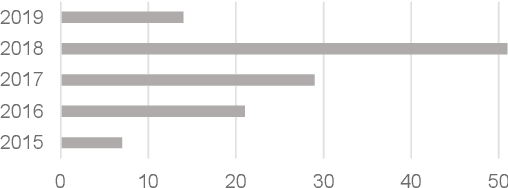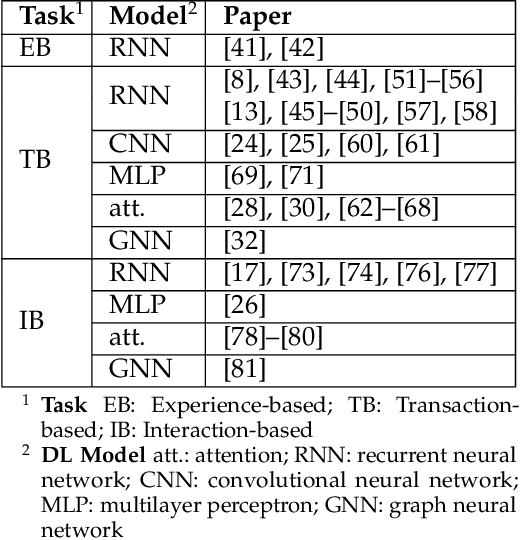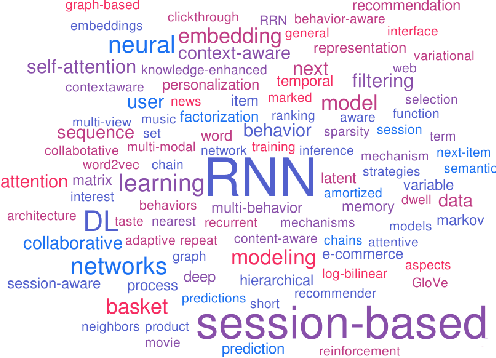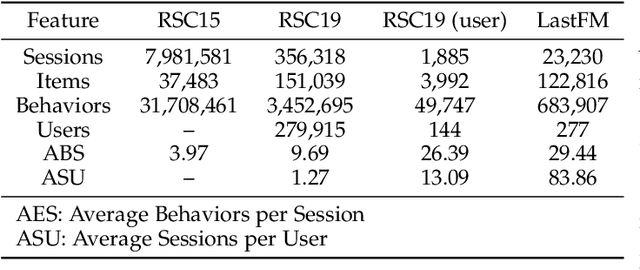Deep Learning-based Sequential Recommender Systems: Concepts, Algorithms, and Evaluations
Paper and Code
Apr 30, 2019



In the field of sequential recommendation, deep learning methods have received a lot of attention in the past few years and surpassed traditional models such as Markov chain-based and factorization-based ones. However, DL-based methods also have some critical drawbacks, such as insufficient modeling of user representation and ignoring to distinguish the different types of interactions (i.e., user behavior) among users and items. In this view, this survey focuses on DL-based sequential recommender systems by taking the aforementioned issues into consideration. Specifically, we illustrate the concept of sequential recommendation, propose a categorization of existing algorithms in terms of three types of behavioral sequence, summarize the key factors affecting the performance of DL-based models, and conduct corresponding evaluations to demonstrate the effects of these factors. We conclude this survey by systematically outlining future directions and challenges in this field.
 Add to Chrome
Add to Chrome Add to Firefox
Add to Firefox Add to Edge
Add to Edge